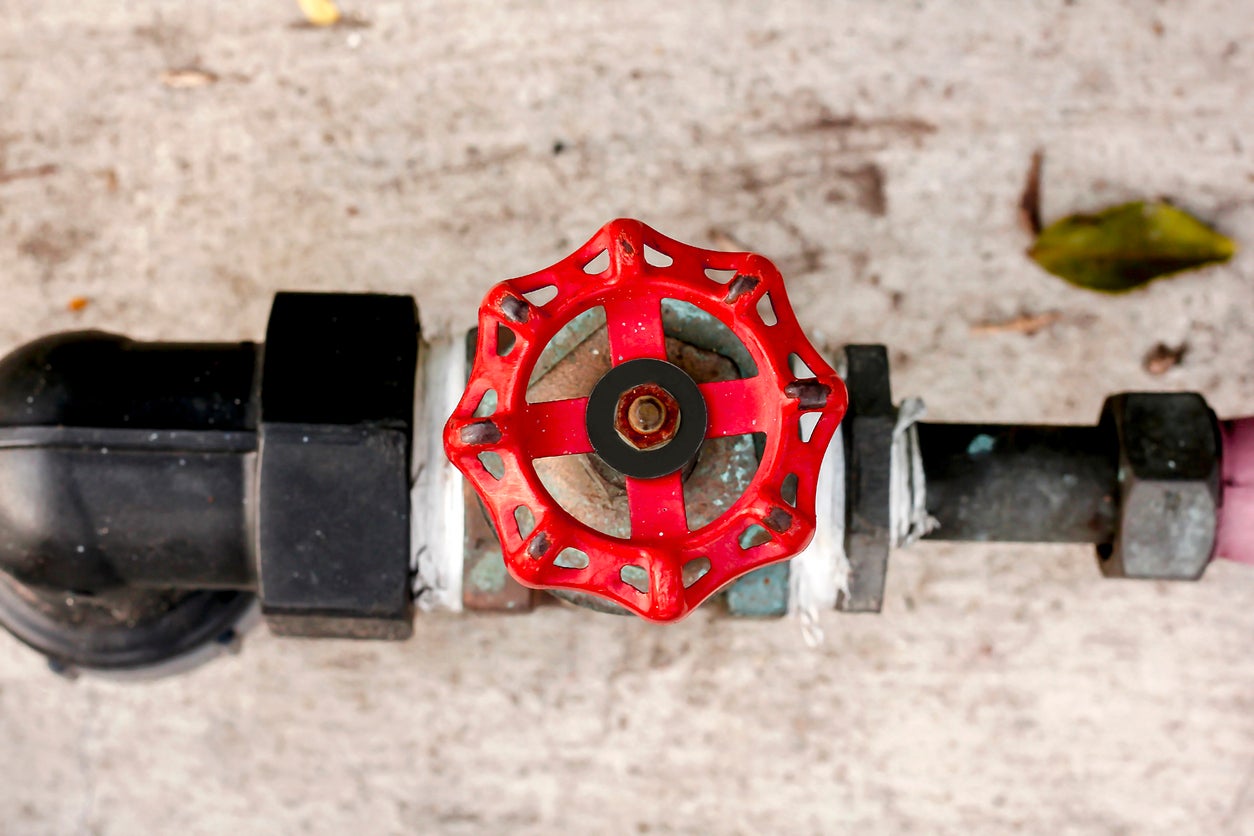Clear Tips for Fixing Low Water Pressure in Your Home
Clear Tips for Fixing Low Water Pressure in Your Home
Blog Article
Every person seems to have his or her own opinion involving 9 Reasons for Low Water Pressure in Your House.

Low water pressure in your home can be a frustrating problem, affecting whatever from bathing to washing recipes. If you're experiencing weak water circulation, there are numerous feasible reasons and remedies to check out. In this overview, we'll go over common factors for low tide pressure and useful actions to resolve the concern efficiently.
Intro to Low Tide Stress
Low tide stress takes place when the circulation of water from your faucets, showers, and other fixtures is weak than normal. This can make day-to-day tasks a lot more tough and much less efficient. Recognizing the reasons for low water stress is important to discovering the right remedy.
Typical Reasons For Low Water Pressure
Faulty Stress Regulators
Pressure regulatory authorities are responsible for keeping consistent water pressure in your house. If they malfunction, it can result in low water pressure or irregular circulation throughout the house.
Metropolitan Water Supply Issues
In some cases, the trouble lies outside your home. Municipal water supply problems, such as main line leaks or maintenance job, can momentarily lower water stress in your area.
Pipe Obstructions
Over time, pipes can come to be clogged with natural resource, debris, or debris, restricting the circulation of water. This is a common problem in older homes with galvanized steel pipes.
Rust
Rust within pipes can bring about leakages and reduced water pressure. Rust buildup can constrict water flow, particularly in aging plumbing systems.
Just How to Detect Low Water Stress
Inspecting Pipelines
Check visible pipes for indicators of leakages, rust, or clogs. Take notice of any type of unusual audios, such as banging or rattling pipelines, which might indicate issues within the plumbing system.
Consulting with a Plumber
If you're incapable to determine the root cause of low water stress, consider hiring a professional plumber to perform an extensive assessment. They can determine underlying concerns and recommend ideal remedies.
Inspecting Taps and Fixtures
Beginning by evaluating the water stress at various faucets and components throughout your home. If the problem is isolated to certain locations, it may suggest local problems.
Do It Yourself Solutions to Repair Low Water Stress
Flushing Water Heater
Debris build-up in the water heater can restrict circulation and lower efficiency. Purging the storage tank periodically helps remove sediment and keep ideal efficiency.
Inspecting Pressure Regulator
Guarantee that the pressure regulatory authority is operating appropriately. Changing or changing the regulator can assist bring back correct water stress throughout your home.
Cleansing Aerators and Showerheads
Mineral deposits can collect in aerators and showerheads, minimizing water circulation. Remove and clean up these elements routinely to enhance water stress.
Cleaning Clogs in Pipeline
For small blockages, try utilizing a plumbing serpent or chemical drainpipe cleaner to clear blockages in pipes. Be cautious when using chemicals and comply with security guidelines.
When to Call an Expert Plumber
If DIY efforts fail to resolve the issue or if you presume considerable plumbing problems, it's ideal to look for assistance from a qualified plumber. They have the proficiency and devices to attend to intricate concerns safely and successfully.
Preventive Measures to Maintain Water Pressure
Setting Up a Pressure Booster
Consider mounting a pressure booster pump to improve water pressure in locations with constantly low circulation. This can be specifically advantageous for multi-story homes or buildings with high-demand fixtures.
Surveillance Water Use
Bear in mind water usage practices and avoid overtaxing the plumbing system. Easy changes, such as incredible showers and laundry loads, can aid keep appropriate water stress.
Regular Maintenance
Schedule routine maintenance for your plumbing system to avoid issues such as rust, leaks, and clogs. Attending to minor troubles early can aid stay clear of even more substantial fixings in the future.
Conclusion
Managing low tide stress can be discouraging, however recognizing the underlying reasons and executing proper options can restore ideal flow throughout your home. Whether it's cleansing aerators, checking pipes, or speaking with a plumber, taking positive actions can make certain a constant supply of water for your daily demands.
FOUR WAYS TO FIX LOW WATER PRESSURE NOW
Turning on a shower or faucet only to find the water comes out in a sad, slow drizzle is never a good feeling. How exactly are you supposed to wash a pan or take a quick shower when it takes 10 minutes just to rinse off a little soap? The good news is that when your water pressure is bad, there's always a cause: typically one that can be easily fixed. Here are some of the most common causes of low pressure and what you can do to fix the issue:
DEBRIS AND MINERAL DEPOSIT BUILDUPS
If you notice low water pressure from just one or two of the fixtures in your house, the problem likely has to do with debris buildup. Water is full of minerals and other debris, all of which can accumulate in your pipes and on your fixtures. This can cause a blockage that affects how much water flows through. To fix this, try filling a small plastic bag with white vinegar, and use a rubber band to hang it around your showerhead or faucet. Let the head of the fixture soak for a few hours, and the vinegar should loosen the deposits.
WATER LEAKS
Leaks are another common cause of low water pressure. If water is flowing out of your plumbing through a hole or crack before it can reach your fixture, the pressure coming out of the faucet or showerhead will be lower. A plumbing professional is your best bet for finding and repairing a leak in your water supply pipes.
Leaks are another common cause of low water pressure. If water is flowing out of your plumbing through a hole or crack before it can reach your fixture, the pressure coming out of the faucet or showerhead will be lower. A plumbing professional is your best bet for finding and repairing a leak in your water supply pipes.
A VALVE ISSUE
If you have low water pressure throughout your home, check your main shut-off valve to make sure it's completely open. You may also want to see if there's a pressure-reducing valve installed. If there is, have a plumber help you adjust the settings to get the pressure you're looking for.
OTHERS USING WATER
Believe it or not, your low water pressure could be caused by your neighbors. If you notice low pressure at certain times of day, it may be because you and the people living next to you have similar schedules - when everyone is showering at the same time, the pressure will be lower in every home. Low pressure throughout the neighborhood may also be caused by an issue with your municipal water supply. If that's the case, call the supplier to see if they're working on the issue.
https://www.rotorooter.com/blog/water-leaking/low-water-pressure-fixes/

I hope you enjoyed reading our topic on Low Water Pressure in the House?. Thanks a ton for taking a few minutes to read our piece. Appreciated our content? Please share it. Help others locate it. Thank you so much for your time invested reading it.
Or Book Technician Here Report this page